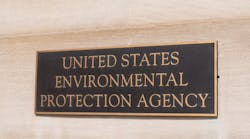Nick Snow
Washington Editor
Republican congressional energy leaders introduced bills aimed at stopping the US Environmental Protection Agency's implementation of greenhouse gas (GHG) regulations under the Clean Air Act. House Energy and Commerce Committee Chairman Fred Upton (Mich.) and Senate Environment and Public Works Committee Ranking Minority Member James M. Inhofe (Okla.) each said his bill was designed to prevent new energy taxes.
"Whether at the pump or on their monthly utility bills, American families, farmers, and employers feel the pinch when energy prices go up," Upton said. "The very last thing the federal government should do is make matters worse by intentionally driving up the cost of energy. Yet that is exactly what's in store if EPA moves forward with its plans to regulate and penalize carbon emissions under the Clean Air Act."
Inhofe said his bill differs from Sen. John D. Rockefeller's (D-W.Va.) to delay EPA's implementation by stopping it completely. "A 2-year delay won't help our economy grow or help those searching for work," he declared. "It does nothing to alleviate the uncertainty plaguing businesses all across America. Simply put, EPA's cap-and-trade regime is bad policy that must be stopped."
EPA began to develop regulations to control GHG emissions under CAA after the US Supreme Court decided in 2007 that the agency had the authority to do so in response to appeals of a Massachusetts lawsuit. The Obama administration and congressional Democrats tried to pressure Congress to act on the matter instead in 2009. The House narrowly passed a global climate change bill that would have established a carbon cap-and-trade program, but the Senate refused to take it up. EPA moved through the rulemaking process and began to implement its regulations in January.
Inhofe said his bill takes this GHG regulatory power from unelected bureaucrats and returns it to Congress where it belongs. His bill has 42 GOP Senate cosponsors. Upton's has 6 Republicans and 3 Democrats—Reps. Dan Boren (Okla.), Nick J. Rahall (W.Va.), and Collin Peterson (Minn.)—as cosponsors.
In response to the bills' introductions, the American Petroleum Institute said both would stop unelected federal officials from regulating carbon dioxide under CAA without affecting the law's continuing success.
"President Obama's recent executive order called for a review of regulations that harm job creation," API Executive Vice-Pres. Marty Durbin said. "EPA's regulation of GHGs under the CAA is potentially one of the worst offenders and should be at the top of the list."
More Oil & Gas Journal Current Issue Articles
More Oil & Gas Journal Archives Issue Articles
View Oil and Gas Articles on PennEnergy.com

